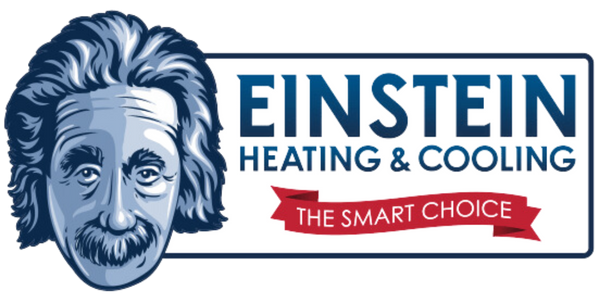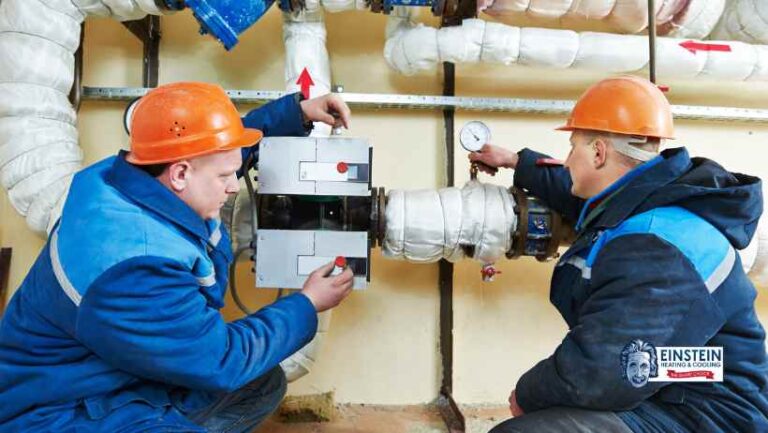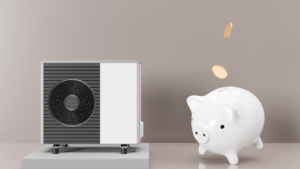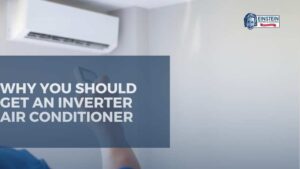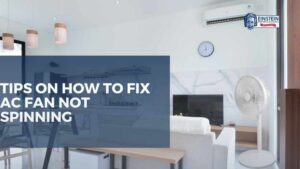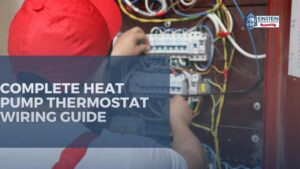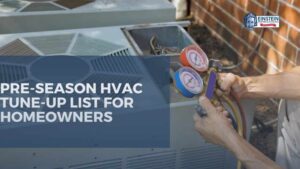Residents of Bend, Oregon experience diverse weather patterns. Maintaining an efficient heat pump is important for a consistently comfortable and energy-efficient home. In this guide, we delve into specific tips for effective heat pump maintenance, addressing the unique needs of the Bend climate.
Do You Need to Maintain Your Heat Pumps?
Heat pumps need to be maintained regularly and they’re relatively easy to use and maintain. To address the common question of whether heat pumps are high maintenance, let’s explore a few key points:
Regular Maintenance vs. Emergency Repairs:
Heat pumps, like any HVAC system, benefit from regular maintenance. Routine tasks such as filter replacement, coil cleaning, and lubrication are relatively simple and contribute to smooth operation. Proactive maintenance helps avoid emergency repairs and extends the lifespan of the heat pump.
User-Friendly Features:
Modern heat pumps often come with user-friendly features, such as programmable thermostats and self-diagnostic capabilities. Heat pumps save money by reducing your energy consumption by up to 50%. These features make it easier for homeowners to monitor and maintain their heat pump systems.
Professional Inspections:
While homeowners can perform some maintenance tasks, professional inspections are crucial for ensuring the overall health of a heat pump. Annual or bi-annual professional inspections can identify potential issues early on, preventing costly repairs and ensuring optimal performance.
Climate Considerations:
The climate in Bend, Oregon, with its varying temperatures, necessitates specific maintenance practices. However, these practices are designed to address the unique challenges posed by the local climate and contribute to efficient heat pump operation.
In summary, while heat pumps do require regular maintenance, the tasks involved are generally manageable and contribute to the longevity and efficiency of the system. The following factors listed below are maintenance tips for your heat pump:
How to Start Maintaining Your Heat Pumps
1. Regular Inspection and Cleaning
Outdoor Unit Inspection:
The outdoor unit is the first line of defense for your heat pump. Regularly inspect the unit for debris such as leaves, dirt, or fallen branches. Ensure that the surrounding area is free from obstructions to allow unrestricted airflow. This simple step promotes optimal heat exchange efficiency and prevents unnecessary strain on the system.
Indoor Unit Inspection:
The indoor unit requires attention to maintain a clean and efficient operation. Check for dust or dirt accumulation on the coils, and if present, clean them accordingly. Additionally, keep the surrounding area tidy to minimize the circulation of dust particles within the system. This practice not only contributes to better air quality but also ensures the longevity of your heat pump.
2. Air Filter Replacement
Frequency of Replacement:
The air filter serves as a crucial component in maintaining proper airflow and system efficiency. Regularly replace the filter every 1-3 months, depending on usage and environmental conditions. A clean filter alleviates the strain on the heat pump, enhancing its performance and extending its lifespan.
Selection of Filters:
When selecting air filters, opt for high-quality models compatible with your heat pump. Consider HEPA filters for their effectiveness in trapping smaller particles, thereby improving indoor air quality. Choosing the right filter type contributes to both the efficiency of your heat pump and the overall well-being of your home environment.
3. Thermostat Calibration
Temperature Settings:
Calibrating your thermostat is vital for accurate temperature readings. Regularly check and adjust the settings to ensure they align with your comfort preferences. Incorrect thermostat settings can lead to increased energy consumption and decreased overall system efficiency.
Programmable Thermostats:
Upgrade to a programmable thermostat to optimize your heat pump’s performance. This allows you to set heating and cooling schedules based on your daily routine, leading to significant energy savings. A programmable thermostat not only enhances efficiency but also provides a more comfortable indoor environment.
4. Lubrication of Moving Parts
Motor and Fan Lubrication:
Some heat pump models feature motors and fans that require periodic lubrication. Refer to the manufacturer’s manual for guidance on lubrication frequency and the appropriate lubricant to use. Well-lubricated moving parts contribute to smooth operation and minimize wear and tear.
Bearing Inspection:
Regularly inspect bearings for signs of wear and tear. Lubricate or replace them as needed to prevent friction, ensuring the smooth operation of the motor and fan. This proactive approach to maintenance goes a long way in preserving the longevity of your heat pump.
5. Coil and Fins Maintenance
Coil Cleaning:
The evaporator and condenser coils play a crucial role in heat exchange. Regularly clean these coils to prevent the accumulation of dirt and debris. This simple maintenance task along with other quick heat pump fixes significantly enhances heat exchange efficiency, allowing your heat pump to operate at its best.
Fin Straightening:
Inspect the fins on the evaporator and condenser coils and straighten any bent fins. Bent fins can impede airflow, leading to reduced efficiency. By ensuring the fins are straight and unobstructed, you contribute to the overall effectiveness of your heat pump.
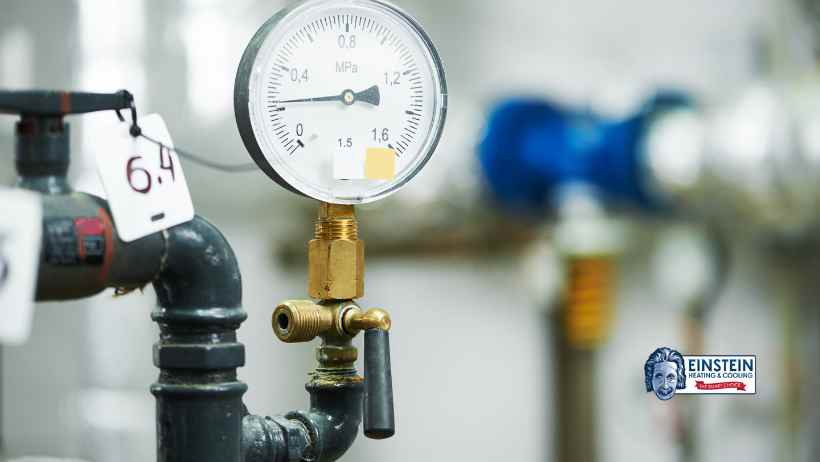
6. Refrigerant Level Check
Professional Inspection:
Regularly schedule professional inspections to check refrigerant levels. Low refrigerant levels can negatively impact the heat pump’s efficiency and may indicate a refrigerant leak, which requires prompt attention from a qualified technician.
Refrigerant Recharging:
If your heat pump’s refrigerant level is low, consult a professional technician for recharging. Attempting to address this issue without the necessary expertise can result in safety hazards and potential damage to the heat pump. Professional intervention ensures the proper handling of refrigerants and the restoration of optimal performance.
7. Electrical Component Inspection
Safety Precautions:
Before inspecting any electrical components, prioritize safety by turning off the power supply to the heat pump. Check for loose or damaged wires and connections, tightening or replacing them as necessary. Safety precautions are paramount when dealing with electrical components to avoid potential hazards.
Contactors and Capacitors:
Regularly inspect contactors and capacitors for signs of wear or damage. These components are critical to the electrical system of your heat pump. Replace any faulty parts promptly to prevent electrical issues that could lead to system failure.
8. Condensate Drain Cleaning
Drain Inspection:
Regularly inspect the condensate drain for clogs. A clogged drain can lead to water damage and compromise the performance of your heat pump. Routine checks and cleaning contribute to the prevention of potential issues.
Cleaning Procedure:
Utilize a mixture of water and bleach to clean the condensate drain and inhibit the growth of mold and algae. Ensure proper drainage to prevent water accumulation, which can lead to system inefficiency and damage.
9. Exterior Coil Protection
Shade Installation:
Consider installing shades or awnings above the outdoor unit to protect from direct sunlight. This simple measure helps maintain optimal operating temperatures and prevents the outdoor unit from overheating, ensuring consistent efficiency.
Winter Preparations:
During winter, cover the outdoor unit with a specialized cover designed for this purpose. This safeguard protects the heat pump from ice and snow, preventing potential damage. Remember to remove the cover before using the heat pump to avoid operational issues.
Signs That Professional Heat Pump Maintenance Is Needed
While DIY maintenance plays a crucial role in keeping your heat pump in good shape, there are certain signs that indicate it’s time to bring in the HVAC professionals from Einstein Heating and Cooling for a thorough inspection and maintenance. Identifying these signs promptly can prevent further damage and ensure the continued efficient operation of your heat pump.
Inadequate Heating or Cooling
One of the most noticeable signs that your heat pump requires professional attention is its inability to adequately heat or cool your living space. If you find that the temperature inside your home doesn’t match the thermostat setting or if there are noticeable temperature imbalances between rooms, it’s a clear indicator that there may be underlying issues that need professional diagnosis and resolution.
Unusual Noises
While it’s normal for a heat pump to produce some noise during operation, any unusual or loud sounds should not be ignored. Grinding, banging, or squealing noises can indicate problems with the internal components, such as the motor, fan, or belts. Professional technicians have the expertise to identify the source of these sounds and address the underlying issues before they escalate.
Refrigerant Leaks
Refrigerant is a vital component for the proper functioning of a heat pump. If you notice refrigerant leaks, indicated by hissing sounds, an unexplained increase in energy bills, or a decline in overall system performance, it’s imperative to seek professional assistance. Refrigerant leaks not only compromise efficiency but can also pose environmental and health risks, emphasizing the need for prompt professional intervention.
Short Cycling
Short cycling, characterized by the heat pump turning on and off frequently, can lead to increased energy consumption and premature wear and tear on the system. This behavior may be indicative of issues such as a malfunctioning thermostat, a clogged filter, or an improperly sized heat pump. Professional technicians can conduct a comprehensive assessment to identify the root cause and implement the necessary repairs to restore normal cycling patterns.
Ice Buildup
While some frost on the outdoor unit during the winter is normal, excessive ice buildup on either the outdoor unit in the cooling season or the indoor coils in the heating season is a cause for concern. Ice accumulation can restrict airflow and hinder the heat exchange process. Professional maintenance is crucial to diagnose and address the underlying issues leading to ice buildup, ensuring the efficient operation of your heat pump.
Conclusion
By incorporating these detailed heat pump maintenance practices tailored for the Bend climate into your routine, you ensure the consistent and efficient operation of your system. From regular inspections to specialized maintenance methods by the experts at Einstein Heating and Cooling, each step contributes to the longevity, energy efficiency, and overall performance of your heat pump. Stay proactive with your maintenance efforts, and your heat pump will continue to provide reliable and efficient service, regardless of Bend’s ever-changing weather conditions.
